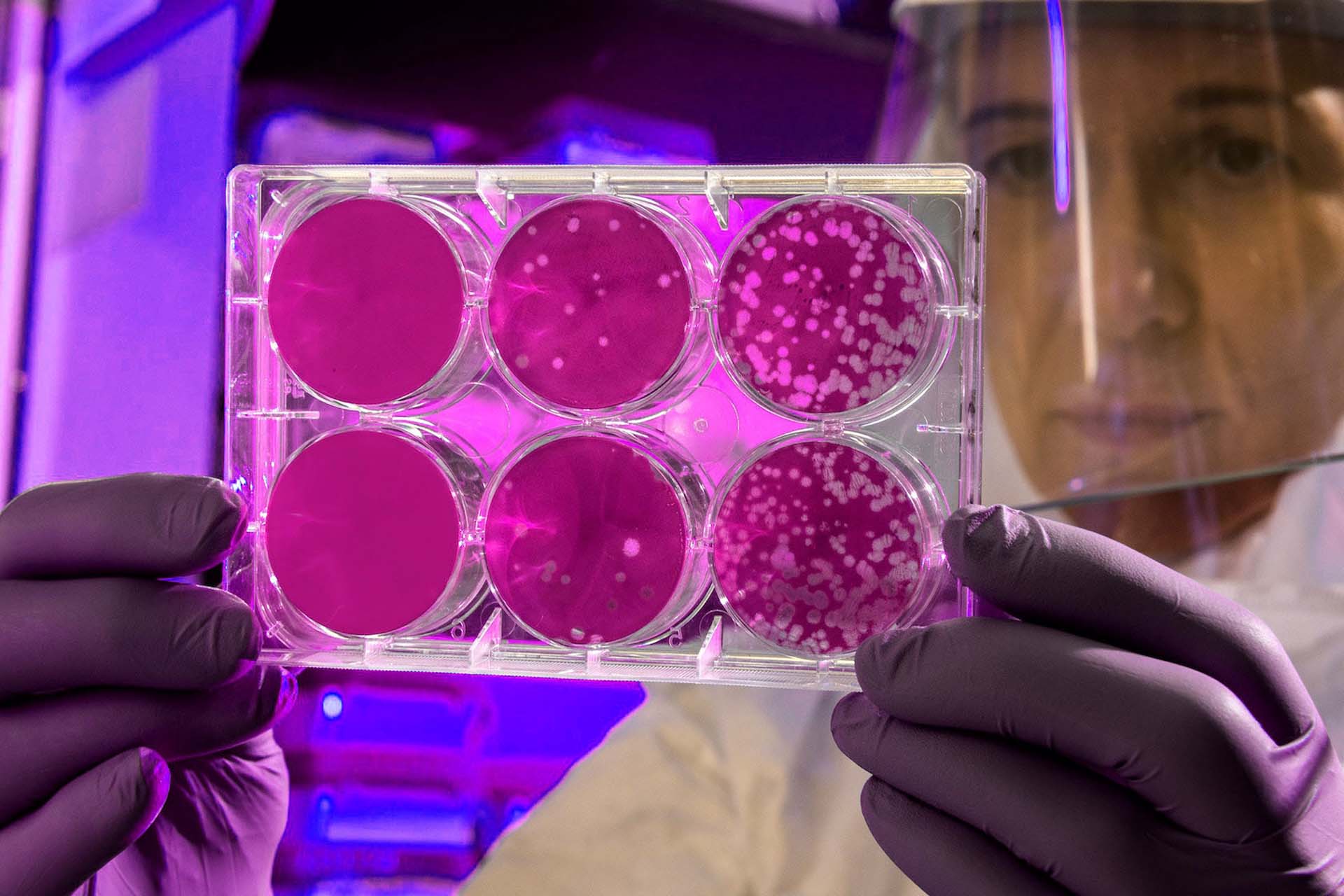Yet these countries are least able to detect diseases quickly and respond effectively. In response, we will build on our strong global links to better identify potential threats and help build a global, multi-disciplinary workforce. These biologists, environmental scientists, medics, veterinarians, social scientists, anthropologists and others will be the boots on the ground who detect emerging pathogens, understand the impact of how we interact with wildlife, and prevent potential pandemics.
With your support The Pandemic Institute will:
Harness our database of pathogens to identify and anticipate future threats and inform responses
- We will expand by; adding data on the movements of people and animals globally, sequencing virus genetic code to predict virulence and transmissibility, and modelling to predict where pathogens are most likely to come into contact with humans
- Expanding experimental research with pathogens to identify which types of cells they can infect. Understanding how a pathogen infects animals and humans can help predict future transmission events
- Working with local partners to establish country-by-country national surveillance of zoonotic pathogens, to further help the world detect and investigate pathogens as they emerge.
Co-develop with partners a series of Global Pandemic Preparedness Hubs in low- and middle-income countries
This work will build significant local human and technological capacity in pandemic preparedness and:
- provide expert mentoring, training and funding for high-quality science in critical areas, and improve field labsband equipment
- strengthen collaboration across universities, the health services industry and governments, to shape policy, create national preparedness plans, and establish early warning systems.
Deliver highly accurate, ready-to-use diagnostics for home testing and lab settings, enabling rapid response as new infections emerge
To prepare for future threats we will develop a library of generic tests for families of viruses that are
global threats. In collaboration with FIND (the Foundation for Innovative New Diagnostics), Geneva, we will share these in the UK and around the world.
Back to: The Pandemic Institute
